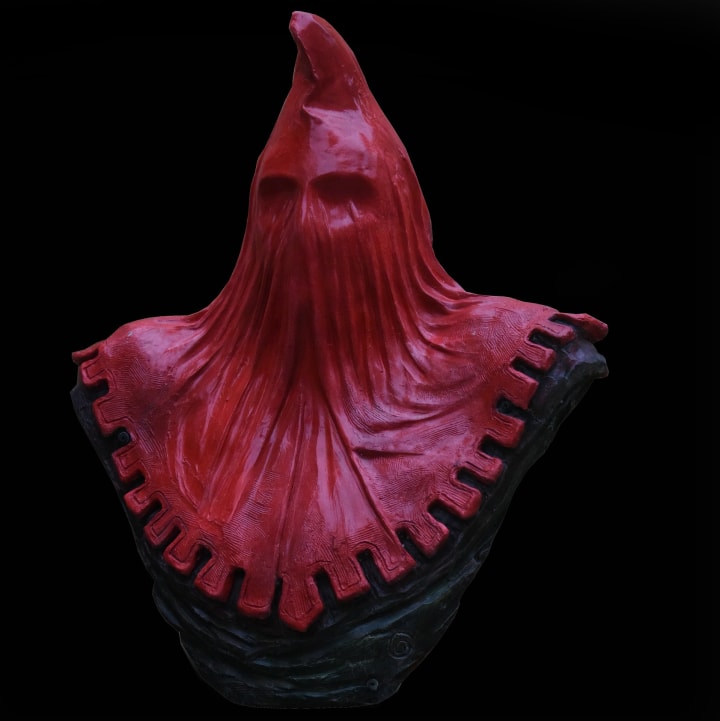5 Tips For Playing Better Vigilantes
A Pathfinder RPG Guide

The idea of a costumed hero who hides their true face behind a secret identity has a rich and varied history in our stories. Arguably beginning with the Scarlet Pimpernel in the early 1900s, the archetype also includes such famous characters as Zorro, The Shadow, The Phantom, and Batman. Playing such character in a traditional fantasy game has been difficult, but for those who wish to combine genres, Paizo gave us the Vigilante base class in Ultimate Intrigue!
While this base class opens up a slew of options (with its unique talents, dual identity, and other features), those who want to make their vigilantes stand out should keep some of the following tips in mind.
Additionally, those looking for inspiration may want to take a look at my recently-released A Baker's Dozen of Fantasy Vigilantes to start those creative juices flowing! And for those who are looking more for practical, mechanical advice, I've written guides for Batman, Nightwing, Spider-Man, and The Incredible Hulk which use the vigilante class as their base.
For more classes, fantasy races, and general RPG tips, check out my 5 Tips series, as well as my blog Improved Initiative. And for more odd history, eclectic geekery, and gaming, consider taking a stroll through my full Vocal archive while you're here!
Tip #1: What is Your Vigilante Persona?

The first thing that most of us think of when we decide we want to play a costumed vigilante is, arguably, the vigilante identity. It tends to be the more outlandish part of the package, and it's the part we tend to imagine spending the most time roleplaying.
Which is why it's important to really take a moment and ask just what the vigilante persona you're going for is.
What impression do you want to give when they're finally revealed? Is your vigilante a grim harbinger of doom, decked out in a black cloak with an enameled skull mask? Are they instead bright and colorful, drawing immediate attention to themselves like a larger-than-life figure from a circus or an opera? Do they have a catchphrase? Do they leave a calling card behind, whether that be literal in the form of a playing card left prominently at the scene, or more figurative in that their methods are immediately recognizable? Did they name themselves, or was their name given to them by the public? Are they drawing on past figures and legends in the area's lore (perhaps even taking on the mantle of an older vigilante), or are they a new and unique force all their own?
Whether their persona is an incarnation of Aemon Ketch, the Black Hangman whose ghost is said to haunt the reaches of the Snarlwood looking for those who deserve to swing, or the Crimson Jester who makes a mockery of her foes even as she leaves them battered and bruised, the persona should be instantly memorable. It is, after all, the basis of your vigilante's street legend.
Tip #2: Who is Your Civilian Identity?

The social identity is the other half of any vigilante character, but in all fairness they are usually the less exciting half. They have to play it cool, and keep their vigilante talents under wraps for fear of exposing themselves and their double life to any eagle-eyed observers. However, while it might be tempting to assign the social identity a single line, such as, "Mild-mannered reporter," don't do your character a disservice.
You've got a chance to play two characters in one... so do that!
Give your social identity just as much, if not more, attention than your vigilante one. Because while they might not be quite as exciting, the social identity is who someone has been most of their life, so make that an engaging part of the story. Are they a "retired" knight come home from the wars who cannot sit idly by while the countryside is ravaged by bandits? A militia watch detective who can't operate within the law, so they go outside it under a mask? Are they just a common actor who uses the tricks of the stage to create a whole new persona, and to light a fire under the populace?
Your social identity has friends, family, lived a childhood, and is the one who is vulnerable in many ways their vigilante identity is not. So flesh all of that out and ask who they're attached to, what drove them to take this step, what conflicts it presents with their quest, and just how different their social identity is. Are they the noble-born fop who actively makes themselves look the fool so no one suspects they're trule an iron-fisted avenger? An every man in the crowd that no one would recognize if you pulled their mask off? Or even an infamous criminal who has been trying to do good deeds, but knew no one would believe them if they did it as themselves?
Tip #3: What Is Your Cause?

Perhaps more so than any other character class, a vigilante should have some kind of cause they're working toward. A goal that can't be accomplished quickly or easily, and which would require something as elaborate as creating a unique, masked identity as a viable strategy.
These goals can be specific or nebulous, but they should be something that can keep the vigilante in-play for the length of the campaign. For example, it might be something as vague as, "Protect the low-end neighborhood of Butcher's Row from predation and harm," or as specific as, "Undermine the authoritarian government that has taken power, and fight to install a fair and just form of rule." Heck, if you're playing an evil vigilante you might simply have the goal of, "Kill and eat people who offend my sensibilities, then serve them up as elaborate dishes," if you wanted to go full Hannibal Lecter.
Whatever your cause is, however big or small, vague or specific, personal or selfless it is, it should be what shapes your actions as a vigilante. And, at least in some ways, it should play into who your persona is, and what drives your social identity. These first three should all come together to complete the trifecta, and to create a full dossier for your character.
Tip #4: Who Are Your Enemies?

They say you can judge someone by their enemies, and part of your vigilante's character should be who they're fighting against. I talked about this a while back in Who's In Your Character's Rogues' Gallery?, but it is worth repeating here. Your character should have particular enemies, and at least in some respects those enemies should reflect a part of who the hero is, and what they're fighting for. Even if your vigilante is more akin to The Punisher (whom I also incidentally have a character conversion guide for) than Batman, even Frank had a handful of villains who kept coming back from what he did to them.
What you shouldn't do is to make villains in a vacuum; instead, talk with your Game Master, and see if they can work with you to create a nemesis or three for you and the party to deal with. If they really want to add some depth to things, you can intertwine your character's story with some of the bad guys who exist in the game already in order to add an operatic note to the proceedings. The black knight who serves as the iron fist of the Council of Darkness, for instance, might be the knight the vigilante was squired to in another life; before their master fell to darkness, and the vigilante went off to uphold the ideals they'd sworn to protect. Perhaps the Second Street Slasher was the vigilante's former sidekick who went mad after being exposed to a dire ritual, and now they have to stop them... but the vigilante doesn't have it in them to kill their former partner.
The sky is the limit as far as ideas for this one go! If you or your GM need inspiration and ideas, though, the following supplements may have just what you're looking for:
- 100 Gangs For Your Urban Campaigns: When you want a more generalized enemy that you're trying to stamp out.
- 100 Random Bandits To Meet: From small-time members, to legends like the Man Eater and the Dark Skull, there are plenty of antagonists you could pluck out of this one. If you prefer a sea-going variety, with black-hearted captains and vicious buccaneers, then 100 Pirates to Encounter might be more what you seek.
- 100 Prisoners For a Fantasy Jail: From bloody-handed enforcers, to disturbed minds and strange monsters, this collection of creeps has all sorts of potential enemies... and one or two allies!
Tip #5: Who Are Your Allies?

Vigilantes are often thought of as lone wolves, keeping their secrets and fighting a solo battle from behind their masks. However, Pathfinder is a group-oriented activity, so it's important to make sure that your vigilante can work with others.
To that end, it's worth it to ask how they came upon the allies they have in the party, and how deep their relationship goes. Do the other members of the party know their secret, or do they truly believe the vigilante to be two different people? And do they have different relationships with each identity, perhaps admiring the decisive action of the Red Bishop, but constantly rolling their eyes at the antics of Shane Vars, even though he is the man behind the crimson veil?
While you may have a legend all your own, the best part of any comic book story line is when heroes cross over, and form new teams. So keep that in mind when creating your vigilante!
It's often a good idea to take it a step further than that, though. Who among the community believes in the vigilante's cause? Who have they saved? Do they have a Harvey Dent or a James Gordon, acting as an NPC the GM could use to slip the party information he wants them to have? Do they have a network of allies, like Zorro or the Scarlet Pimpernel did to ensure everything is in place, or to offer distractions when such were needed (something that can be accomplished with the Loyal Aid social talent)?
Just as your enemies can say a lot about you, so too can the people you consider your allies.
About the Creator
Neal Litherland
Neal Litherland is an author, freelance blogger, and RPG designer. A regular on the Chicago convention circuit, he works in a variety of genres.
Blog: Improved Initiative and The Literary Mercenary






Comments
There are no comments for this story
Be the first to respond and start the conversation.